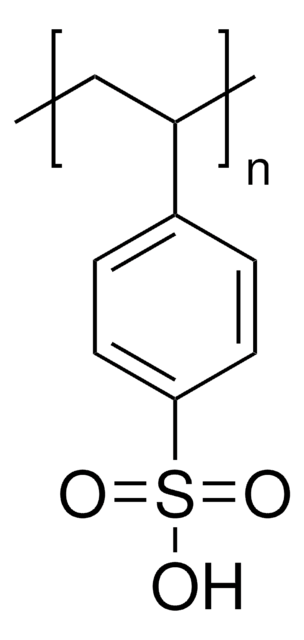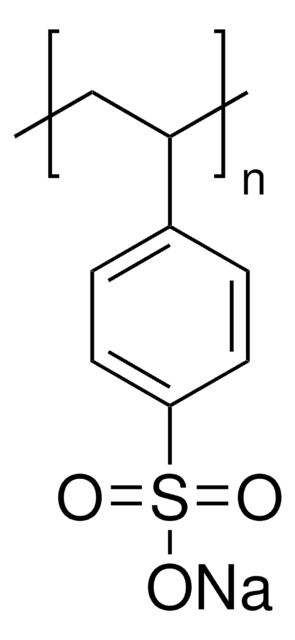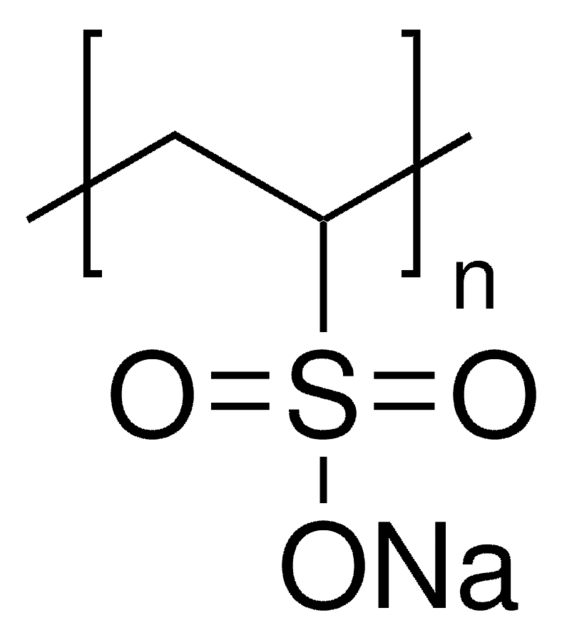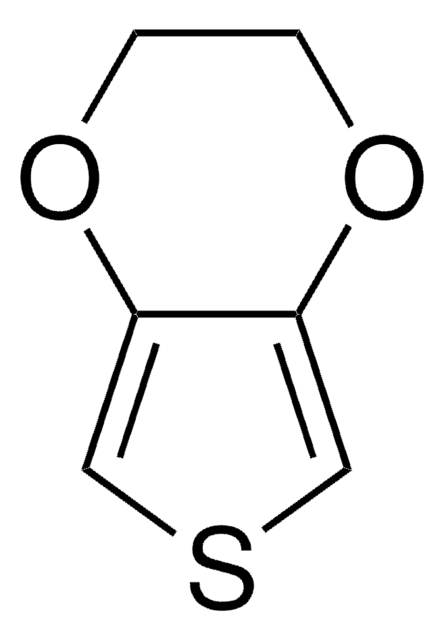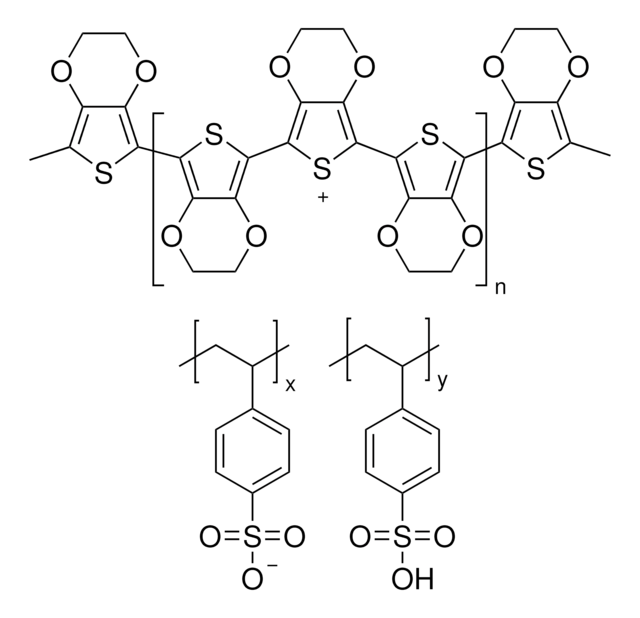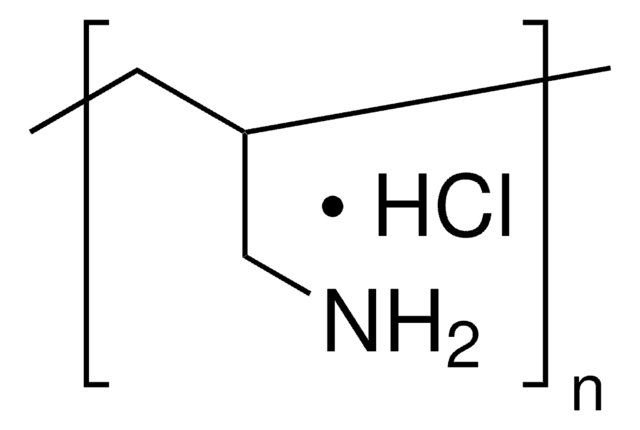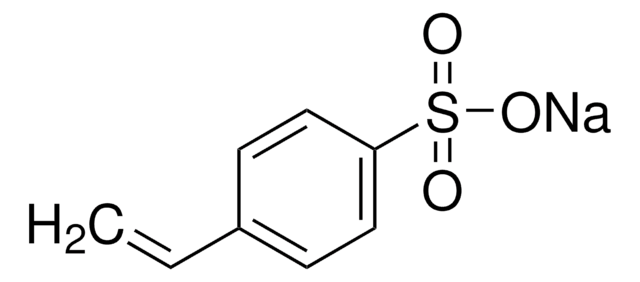243051
Poly(sodium 4-styrenesulfonate)
average Mw ~70,000
Synonym(s):
PSS, Poly(4-styrenesulfonic acid) sodium salt
About This Item
Recommended Products
form
powder or solid
Quality Level
mol wt
average Mw ~70,000
viscosity
15-55 cP, 20 %(25 °C, Brookfield)(lit.)
mp
460 °C (dec.)
solubility
water and lower glycols: soluble
density
0.801 g/mL at 25 °C (lit.)
SMILES string
[S](=O)(=O)(O)c1ccc(cc1)C=C
InChI
1S/C8H8O3S/c1-2-7-3-5-8(6-4-7)12(9,10)11/h2-6H,1H2,(H,9,10,11)
InChI key
MAGFQRLKWCCTQJ-UHFFFAOYSA-N
Looking for similar products? Visit Product Comparison Guide
General description
Application
Features and Benefits
Storage Class
11 - Combustible Solids
wgk_germany
WGK 2
flash_point_f
Not applicable
flash_point_c
Not applicable
ppe
Eyeshields, Gloves, type N95 (US)
Choose from one of the most recent versions:
Already Own This Product?
Find documentation for the products that you have recently purchased in the Document Library.
Customers Also Viewed
Articles
Our research impacts on the hydrogen energy economy through the development of “smart” nanofilms for the protection of metal hydrides against air and moisture, while permitting release of hydrogen gas through these semi permeable nanofilms.
Professor Rivnay (Northwestern University, USA) discusses using organic mixed conductors as an alternative to efficiently bridge the ionic world of biology with contemporary microelectronics.
We present an article that discusses two applications in particular; first, using these layers as polyelectrolyte membranes to control permeability.
Our team of scientists has experience in all areas of research including Life Science, Material Science, Chemical Synthesis, Chromatography, Analytical and many others.
Contact Technical Service